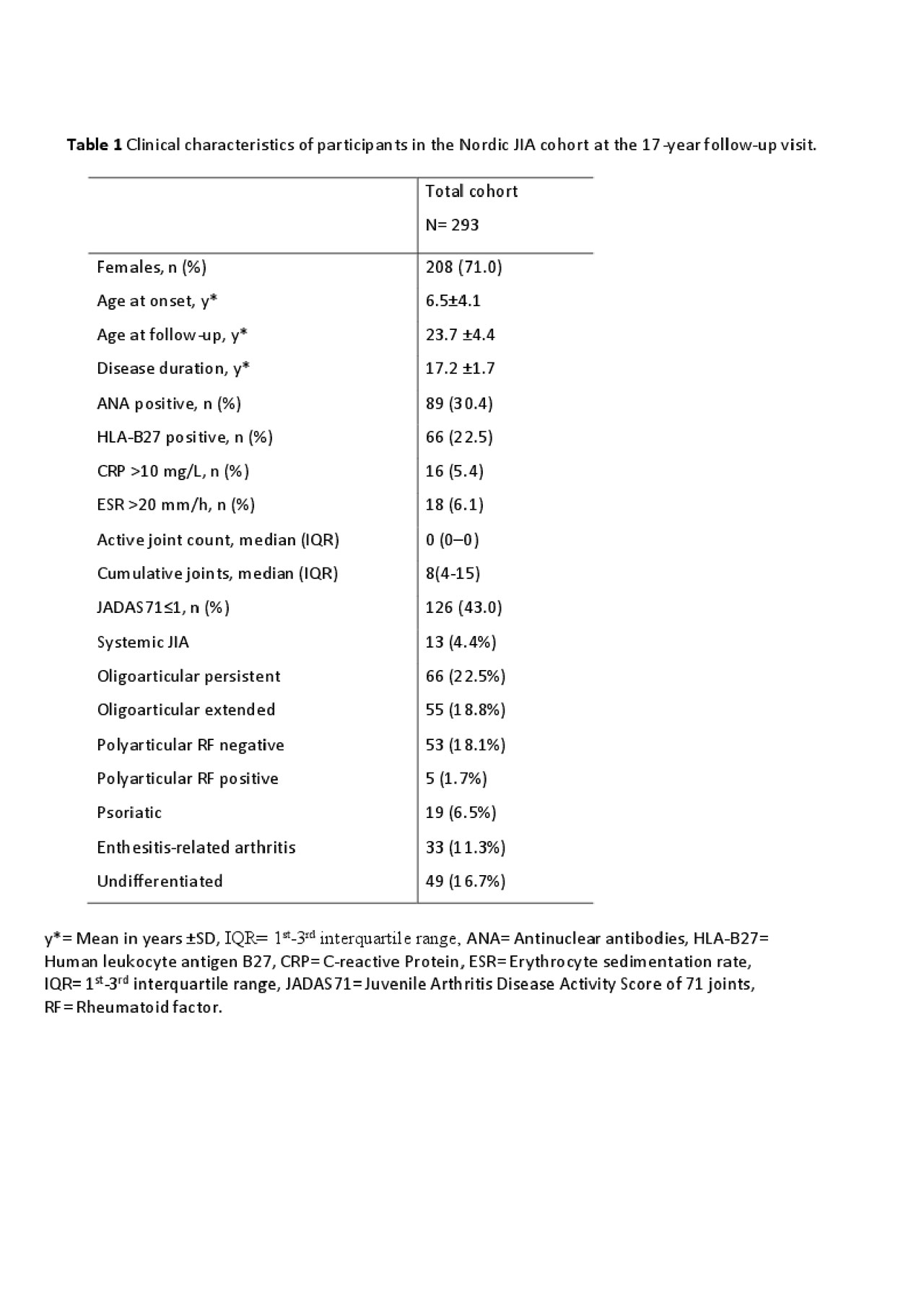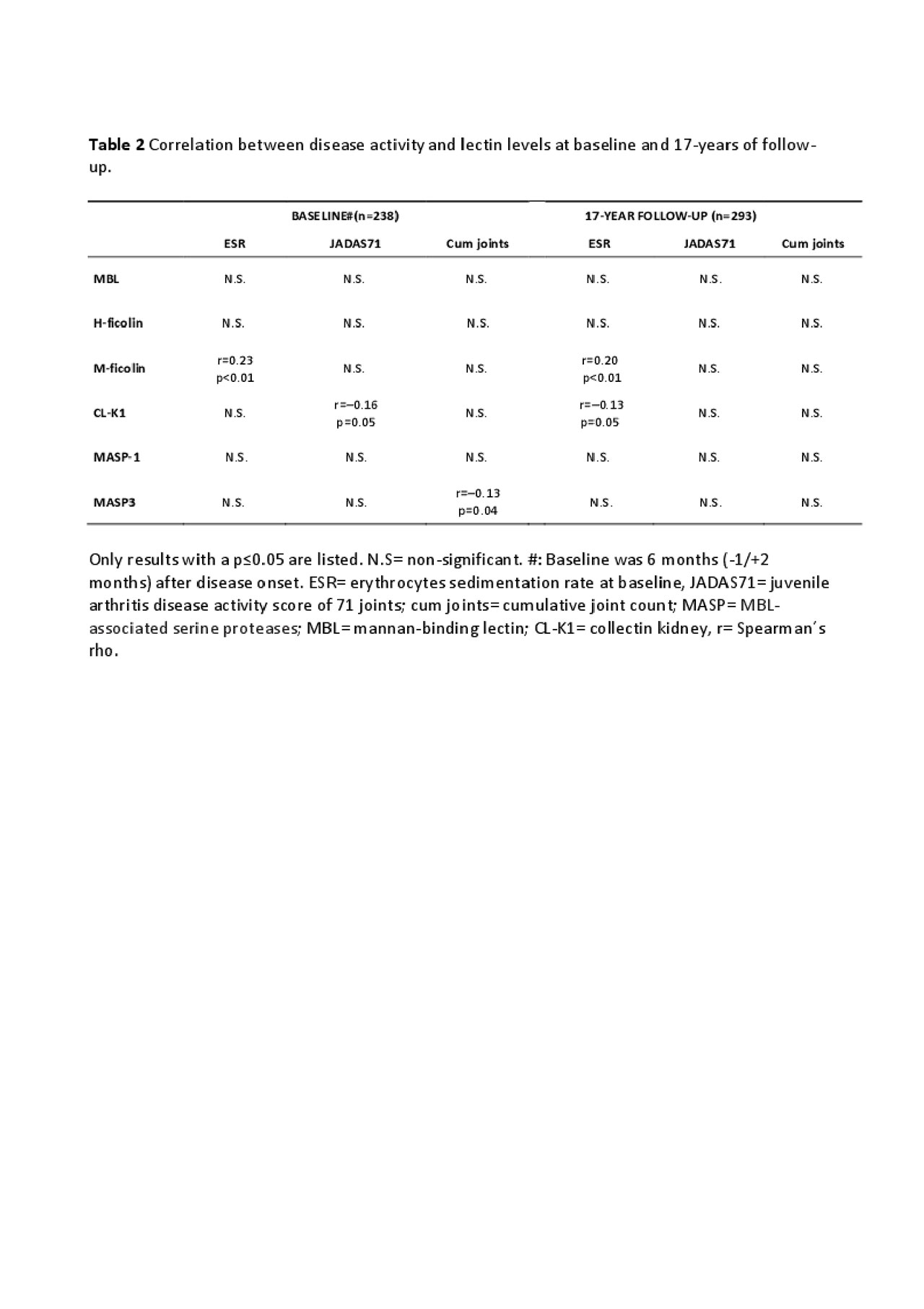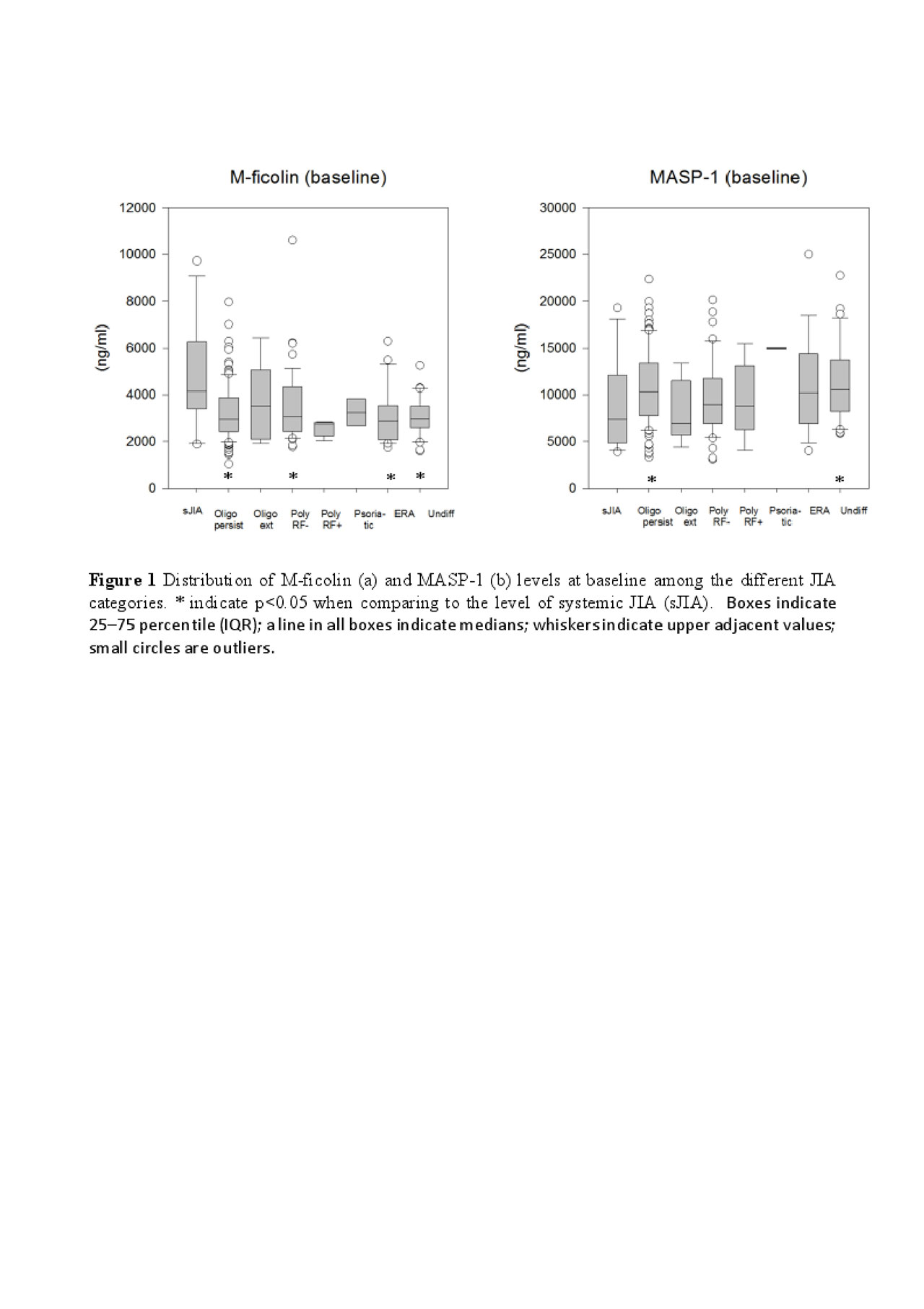Session Information
Date: Sunday, November 10, 2019
Title: Pediatric Rheumatology – ePoster I: Basic Science, Biomarkers, & Sclerodermic Fever
Session Type: Poster Session (Sunday)
Session Time: 9:00AM-11:00AM
Background/Purpose: There is an increasing body of evidence that inadequately controlled activation of complement factors leading to either overactivity or deficiency may be involved in the pathogenesis of some autoimmune diseases. However, the role of the complement system in juvenile idiopathic arthritis (JIA)is still not fully elucidated.The aims of this study were to determine the serum levels of the lectin pathway proteins early in the disease course and 17 years after disease onset and to correlate the protein levels to markers of disease activity in participants from a population-based Nordic JIA cohort. Additionally, we aimed to assess the predictive value of lectin pathway proteins with respect to remission status.
Methods: A population-based cohort study ofconsecutive cases of JIA with a disease onset from 1997-2000 from defined geographical areas of Finland, Sweden, Norway and Denmark with 17 years of follow-up was performed. Clinical characteristics were registered and H-ficolin, M-ficolin, MASP-1, MASP-3, MBL and CL-K1 levels in serum were analyzed.
Results: In total, 293 patients with JIA and available blood samples were included (mean age 23.7 ± 4.4 years; mean follow-up 17.2 ± 1.7 years). Further clinical characteristics of the participants at the 17-year follow-up are reported in Table 1.Concentrations of the lectin proteins in serum were higher at baseline compared to the levels 17 years after disease onset (p≤0.006, n=164). At baseline, the highest level of M-ficolin was observed in systemic JIA, which was significantly higher than in the oligoarticular persistent (p=0.024), polyarticular RF neg (p=0.048), ERA (p=0.02) and the undifferentiated categories (p=0.014) (Figure 1). Conversely, MASP-1 levels at baseline were significantly lower for the systemic group compared to the oligoarticular persistent (p=0.03) and the undifferentiated categories (p=0.019).
Further, high M-ficolin levels at baseline and at 17-year follow-up were correlated to high levels of ESR (Table 2). In contrast, high MASP-1 and MASP-3 tended to correlate to low ESR. CL-K1 showed a negative correlation to JADAS71 at baseline.
None of the protein levels had prognostic abilities with respect to remission or inactive disease status 17 years after disease onset.
Conclusion: We hypothesize that increased serum M-ficolin levels are associated with higher disease activity in JIA and further, the results indicate that MASP-1, MASP-3 and CL-K1 negatively correlated to markers of inflammation.
To cite this abstract in AMA style:
Glerup M, Thiel S, Rypdal V, Arnstadt E, Ekelund M, Peltoniemi S, Aalto K, Rygg M, Nielsen S, Fasth A, Berntson L, Nordal E, Herlin T. Complement Protein Levels Reflect Disease Activity in Juvenile Idiopathic Arthritis [abstract]. Arthritis Rheumatol. 2019; 71 (suppl 10). https://acrabstracts.org/abstract/complement-protein-levels-reflect-disease-activity-in-juvenile-idiopathic-arthritis/. Accessed .« Back to 2019 ACR/ARP Annual Meeting
ACR Meeting Abstracts - https://acrabstracts.org/abstract/complement-protein-levels-reflect-disease-activity-in-juvenile-idiopathic-arthritis/



